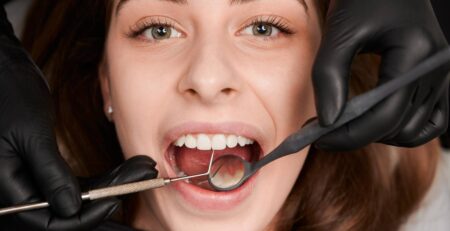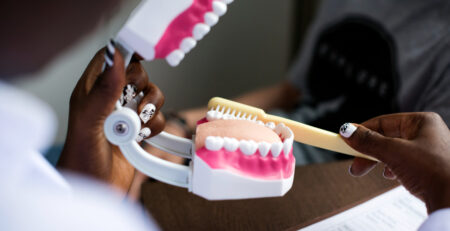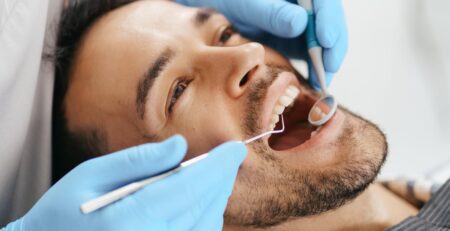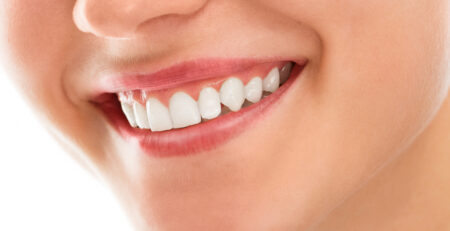How to Protect Your Teeth At Home
Taking care of your teeth shouldn’t feel like a chore. It’s less about perfection and more about building a few smart habits into your everyday life. Most people know the basics—brush, floss, rinse. But there’s a whole world beyond that, and it doesn’t take fancy gadgets or expensive treatments to do it right. The trick is knowing what actually works and what just sounds good on a label. Let’s dig into the lesser-known ways to strengthen your teeth, protect your gums, and keep your mouth feeling fresh—without stepping foot in the dentist’s office every month.
Enamel Fortification with Mineral-Rich Oral Products
Tooth enamel doesn’t grow back once it’s gone. But you can help it stay strong by feeding it the minerals it needs. Look for products that include calcium phosphate, hydroxyapatite, or fluoride—not just any toothpaste will do. These minerals help refill the microscopic gaps that open up in enamel from daily wear, acidic drinks, and sugar.
Most people don’t realize their toothpaste choice plays a huge role in long-term tooth strength. Picking a mineral-rich formula gives your teeth the building blocks they need to resist decay and sensitivity. Using it twice daily lets those minerals stay on the surface longer, which is key. You’re not just cleaning your teeth—you’re rebuilding them a little every day.

Incorporate Xylitol-Based Treatments into Daily Routines
Xylitol isn’t just a sweetener—it’s a cavity-fighting powerhouse. It works by messing with the bad bacteria in your mouth, making it harder for them to stick to your teeth or produce the acid that eats away enamel. It also encourages saliva production, which keeps your mouth naturally clean.
Most people associate xylitol with chewing gum, but it also shows up in mouth rinses, toothpaste, and even mints. Adding it to your daily routine can create a small but steady defense against decay, especially in between brushing. It’s a low-effort, high-reward move—and your future self (and dentist) will thank you.
Nightguards as Preventative Measures Against Bruxism
Clenching or grinding your teeth while you sleep might not sound like a big deal, but it can cause real damage over time. Cracks, enamel wear, jaw pain—these are all signs that something’s happening at night you’re not aware of. That’s where nightguards come in.
Nightguards don’t just protect the teeth—they give your jaw a break. They absorb the pressure and reduce the impact of grinding. Even if you don’t feel the effects now, small wear adds up. A custom or over-the-counter nightguard can prevent years of dental repairs and keep your bite healthy and even.
Optimize Oral pH Levels for Enhanced Cavity Defense
Your mouth’s pH plays a big role in how well your teeth can resist decay. A low pH (acidic environment) makes enamel soften, and that’s when cavities get their shot. After eating, especially sugary or acidic foods, your mouth naturally turns more acidic. That’s when it needs help restoring balance.
Drinking water or rinsing after meals can help bring the pH back up. Chewing sugar-free gum or eating cheese can also neutralize acids. Being mindful of this balance gives your teeth more time in a protective state. It’s not about cutting out foods—it’s about helping your mouth recover afterward so your enamel doesn’t pay the price.
Tongue Scraping to Mitigate Harmful Bacterial Buildup
Your tongue holds onto bacteria like a sponge. If you’re not cleaning it, you’re letting that bacteria transfer right back onto your teeth and gums after brushing. Tongue scraping isn’t just about bad breath—it’s about reducing the bacterial load in your mouth overall.
A tongue scraper works better than brushing your tongue. It lifts away the coating that builds up, especially overnight. This reduces the chances of plaque forming on your teeth, keeps your breath fresher longer, and gives your whole mouth a cleaner start. It’s a small step that makes a big difference.
Gumline Protection Through Targeted Flossing Techniques
Flossing isn’t just about getting food out from between your teeth. It’s about cleaning the space where your teeth meet your gums—that’s where most problems start. A lot of people floss in straight lines, but the trick is curving the floss around each tooth and gently sliding below the gumline.
This method clears out plaque before it hardens into tartar. Over time, it helps prevent gingivitis, reduces bleeding, and supports the health of the soft tissue around your teeth. Once you get into the rhythm, it only adds a few extra seconds to your routine, but it keeps your gums protected where a toothbrush can’t reach.
Precision Brushing with Soft-Bristled, Compact Head Toothbrushes
Bigger isn’t better when it comes to toothbrushes. A smaller brush head gives you more control and helps reach the tricky spots, especially behind molars and around the gumline. Soft bristles are also key—they clean without scratching the enamel or irritating your gums.
Most people don’t brush as gently as they think. Firm bristles and pressure can wear away enamel and damage gums over time. A soft-bristled brush used in small circular motions is enough to remove plaque while protecting your teeth. Think of it like polishing, not scrubbing—you’re aiming for clean, not punishment.
Keep Your Teeth Healthy with the Right Care and Support from Lumina Dental – Your Partner in Long-Term Oral Wellness
Taking care of your teeth at home goes way beyond brushing twice a day. It’s about knowing the small actions that can make a big difference—and sticking with them. These habits aren’t hard, but they do need consistency. Whether it’s scraping your tongue in the morning, choosing mineral-rich toothpaste, or wearing a nightguard to protect against grinding, your daily choices are shaping the future of your smile.
Of course, even the best home care needs professional support. At Lumina Dental, we help you catch problems early and keep your mouth in its best shape. If you’ve been wondering whether your current routine is working or if there’s something more you could be doing, let’s talk. Contact us today and get personalized guidance, cleanings, and treatments designed around your real lifestyle—not just a checklist. You take care of your smile at home. We’ll take it from there.











